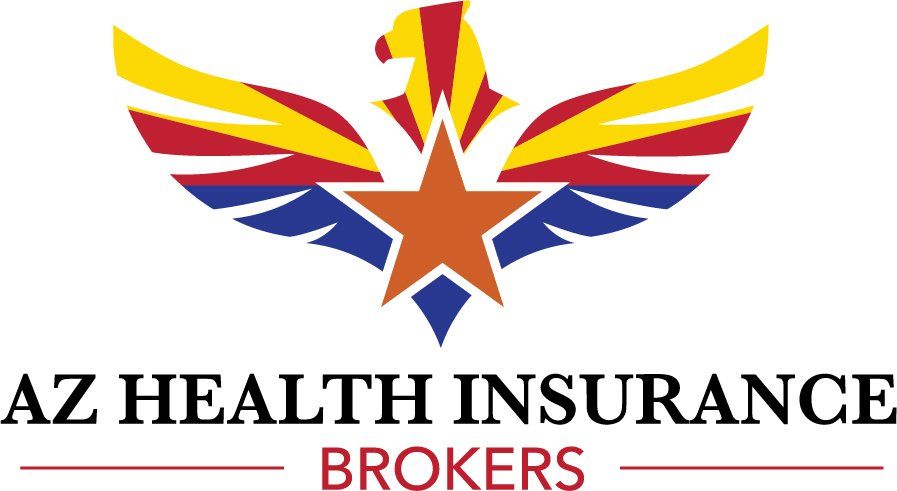What Is an ICHRA? How Individual Coverage HRAs Work for Small Businesses in 2026 (Arizona Guide)
As an employer, you’re probably aware of the advantages of offering healthcare coverage for employees. Healthcare coverage is consistently ranked as one of the top benefits professionals want from employers today. The U.S. Bureau of Labor Statistics reported in September 2025, 72% of private industry workers had access to healthcare benefits.
You have lots of options for the type of healthcare benefits you offer your staff. ICHRAs provide your employees with more freedom in the healthcare providers they choose to work with. They can also help your business save money compared to other small business group health insurance plans.
This guide explains what an ICHRA is, what the potential benefits of offering one are, and how to make one available for your business.
Quick Summary:
An Individual Coverage Health Reimbursement Arrangement (ICHRA) lets employers reimburse employees tax-free for individual health insurance and medical expenses. Unlike group plans, employees choose their own coverage while employers control costs with fixed monthly allowances.
For example, an employer can offer $400 per month per employee to reimburse individual health insurance premiums.

What Is an ICHRA? (Simple Definition)
An ICHRA is a type of employer-funded benefit that reimburses employees for individual health insurance premiums and qualified medical expenses.
ICHRA stands for Individual Coverage Health Reimbursement Arrangement.
ICHRA allows employers to offer tax-free health benefits while controlling costs with a fixed monthly allowance.
ICHRA differs from QSEHRA because there are no employer size limits and no IRS contribution caps.
How Does an ICHRA Work?
An ICHRA is a type of health reimbursement arrangement (HRA) that enables employees to purchase individual-market insurance and get reimbursed for their coverage through an employer-funded account.
Businesses of any size can adopt an ICHRA for their employee healthcare coverage option. How an ICHRA works is simple.
- Employers set a monthly allowance limit for healthcare reimbursement for their employees, including for health insurance premiums and/or qualified medical expenses.
- Employees select their own health insurance provider.
- When an employee receives healthcare, the employer reimburses the employee up to the allowable amount.
All reimbursements are tax-free. Employees can participate if they want but aren’t required to. You can provide an in-demand benefit that can boost your employee retention and can serve as a way to attract talent to your company.
Example: How an ICHRA Works for a Growing Business
ABC Electrical is a California-based company expanding into Arizona. Their current Kaiser Permanente group health plan only works in California, leaving their Arizona employees without in-network coverage. Instead of switching to a nationwide group plan, ABC Electrical sets up an ICHRA and designates a monthly reimbursement allowance for their Arizona employees. Each employee purchases an individual health insurance plan in Arizona, and the company reimburses their monthly premium tax-free through the ICHRA.
What Can an ICHRA Cover?
You’re in charge of determining what an ICHRA provides reimbursement for. Your company’s ICHRA coverage may include:
- Insurance premiums only, for eligible plans including:
- Major medical plans purchased on the Healthcare.gov exchange
- Medicare: Part A+B or Part C
- Catastrophic plans
- Student health insurance
- Qualified medical expenses only, which the Internal Revenue Service (IRS) defines in Publication 502 and include items such as doctor visits, prescriptions, dental procedures, co-pays and medical equipment
- Both insurance premiums and qualified medical expenses
Once you’ve determined how much you want to allow for reimbursement, that figure will stay the same throughout your plan year. Once your ICHRA is up for renewal for a new plan year, you can adjust the allowance amount. This may be due to factors like having a bigger budget to provide more coverage for employees, or hiring more employees and needing to adjust the budget amount.
ICHRA reimbursements are paid to employees, although the funds can be used to reimburse family health insurance premiums depending on plan design.
What Are the Benefits of an ICHRA?
There are many benefits to an ICHRA, which may make it an ideal fit for your business and your employees. Potential advantages include:
- Predictability and control: With an ICHRA, you set the exact coverage and allowance amount. That gives you a predictable budget throughout the plan year. Plus, plans aren’t impacted by annual rate hikes. Your employees know exactly what kind of reimbursement coverage to expect from you, too.
- Freedom of choice: With some employer group plans, employees may lose coverage for their healthcare provider of choice if they’re not covered under an employer plan. With an ICHRA, your employees get to choose the exact type of health insurance they want. For employers who are having difficulty deciding which hospital system to support, such as Banner vs. HonorHealth, an ICHRA puts the freedom of choice in employees’ hands regarding healthcare provider networks.
- Easy and simple: ICHRAs don’t have minimum participation requirements. They’re easy to set up. You don’t have to worry about claims liability. This is all while providing a benefit that can help you attract and retain top employees.
Arizona small businesses in Phoenix, Scottsdale, and Mesa are increasingly using ICHRAs to reduce group plan costs while giving employees more flexibility in choosing doctors and networks.
ICHRAs are fairly new, having only been available since 2020. Many professionals aren’t aware of them or know how they work. With some education, you may find your workforce prefers this kind of business healthcare coverage compared to other types of plans.
What Qualifications Must a Business Meet to Offer an ICHRA?
Good news: if you have at least one W-2 employee, you can offer an ICHRA at your business. These include part-time, seasonal and foreign employees.
Employers can offer an ICHRA in addition to a group health insurance plan, but the same type of plan must be offered to the same employee class. For example, if you offer group health insurance to your full-time employees, you wouldn’t be able to offer an ICHRA as another option. You could, however, offer an ICHRA to your part-time employees.
ICHRA for Self-Employed Businesses and 1099 Contractors
ICHRAs are commonly used by small businesses with W-2 employees, including companies with contractors or self-employed owners. While self-employed individuals cannot reimburse themselves through an ICHRA, they can use an ICHRA to provide benefits to their W-2 staff without offering a traditional group health insurance plan.
For business owners who work with freelancers or mixed employee structures, an ICHRA can be a flexible way to offer health benefits while controlling costs.
2026 ACA Affordability Update
It’s important to be aware of some changes to Affordable Care Act (ACA) affordability guidelines for 2026 set forth by the Internal Revenue Service (IRS) that could impact ICHRA desirability at your business. Employer-sponsored health plans are deemed affordable if employees pay no more than 9.96% of their household income for self-only coverage. That’s a significant increase from 9.02% in 2025, giving applicable large employers (ALEs) the ability to increase worker contribution rates for self-only coverage.
Also, the federal poverty line (FPL) safe harbor has increased to $129.90/month, from $113.20/month in 2025. This number represents the maximum monthly worker contribution for the lowest-cost self-only plan.
Being aware of figures like these could impact your decision of whether or not to offer an ICHRA and/or a different group health insurance plan. Talk with an insurance broker to walk through all your options and find the most affordable one.
ICHRA vs ACA Marketplace Subsidies (Premium Tax Credits)
An ICHRA can affect an employee’s eligibility for ACA Marketplace premium tax credits. If an employer offers an affordable ICHRA, the employee generally cannot receive premium tax credits on the Marketplace. However, if the ICHRA is considered unaffordable, the employee may opt out of the ICHRA and still qualify for subsidies.
Because of these rules, it’s important for employers and employees to compare ICHRA allowances with Marketplace subsidy eligibility to determine the most cost-effective option.
Not sure whether an ICHRA or Marketplace subsidies would make more sense for your business or employees? Use the calculator below to estimate costs and compare scenarios.
The 2026 HSA Advantage
There are more new developments in the healthcare space in 2026 for business owners and workers. This year, all ACA Marketplace Bronze plans are now health savings account (HSA)-eligible, as they’re considered high deductible health plans that can be paired with an HSA.
This makes pairing an ICHRA with an HSA a powerhouse combination for staff. As an employer, you have more flexibility in the type of healthcare coverage you’re offering your employees.
Are There Limits to an ICHRA?
No, there aren’t limits to what you set as your employer maximum contribution in an ICHRA. There are also no limits to how many employees you offer the ICHRA to, as long as the employees belong to the same employee class.
What Are the ICHRA Rules of Notification?
Like other employer healthcare coverage, you must notify your employees about ICHRA eligibility so they understand what’s available to them. You must provide a notice in writing to:
- Each employee who becomes eligible during the plan year to the employee no later than the date they’re eligible
- Each ICHRA participant at least 90 days before the plan year starts
If you establish the ICHRA fewer than 120 days before the first plan year starts, you must provide the notice before or no later than on the ICHRA’s effective date.
What Are the Differences Between an ICHRA, HRA and QSEHRA?
As mentioned, an ICHRA is a type of HRA, or health reimbursement account. Another type of HRA is a QSEHRA. QSEHRA stands for Qualified Small Employer Health Reimbursement Arrangement.
First, let’s look at the similarities between an ICHRA and a QSEHRA.
- Both plans enable the employer to set the monthly allowance amount.
- With both plans, employees purchase the healthcare of their choice.
- Both plans may reimburse expenses listed in the IRS Publication 502.
- With both plans, employees submit their expense documentation, after which employers review and approve the eligible requests.
- Both plans provide tax-free reimbursement, both in terms of payroll tax and income tax for the participant.
The main differences between an ICHRA and a QSEHRA are:
- With an ICHRA, there are no limits to how many employees may be eligible for this plan. With a QSEHRA, employers are only eligible if they have fewer than 50 full-time employees.
- With an ICHRA, employers may also offer a group insurance policy to a specific class of employees that’s separate from the employee class receiving ICHRA benefits. With a QSEHRA, employers aren’t allowed to offer a group insurance policy.
- With an ICHRA, the employer structures employee eligibility. With a QSEHRA, all full-time employees and their families will be automatically eligible for the benefit.
- With an ICHRA, there are no allowance caps for what an employer can reimburse an employee for. With a QSEHRA, the IRS updates annual allowance caps each year. In 2026, a QSEHRA is limited to $6,450 for an individual and $13,100 for a family.
There are a few other differences between an ICHRA and a QSEHRA, including premium tax credit guidelines. Contact a
business health insurance expert to walk you through what the differences may mean for your business.
| Features | ICHRA | Group Health Plan | % Change |
|---|---|---|---|
| Employer cost control | Fixed allowance | Variable premiums | Fixed allowance |
| Employee choice | High | Limited | High |
| Company size limit | None | None | <50 employees |
| Contribution limits | None | N/A | IRS capped |
| ACA subsidy interaction | Yes | No | Yes |
Are ICHRAs Tax-Deductible?
Yes. Any reimbursements an employer makes in an ICHRA are tax-deductible. Plus, ICHRA reimbursements are received tax-free by employees.
Why Is Now a Good Time to Consider an ICHRA?
With the expiration of federal tax credits, employer-funded HRAs like ICHRAS are more important than ever.
There’s also the potential of the subsidy cliff returning, meaning more low-income workers are susceptible to having to pay high health insurance premium payments when they earn even $1 above the FPL. If you want to keep employees healthy and happy at work, an ICHRA offers in-demand healthcare benefits that help workers.
How Do I Set Up an ICHRA?
To set up an ICHRA, you’ll need to take the following steps.
- Choose a start date.
- Set a cancellation date for your group policy, if you plan to cancel it.
- Determine eligibility, and designate employee class groups.
- Set your budget and determine allowances.
- Establish legal plan documents to ensure compliance with the IRS and U.S. Department of Labor. (Go with an ICHRA Administrator)
- Educate your employees about your ICHRA offering.
You can also provide resources to your employees so they can purchase their own individual health insurance or family health insurance, since they’ll need that in order to get reimbursed under an ICHRA.
To get help to set up an ICHRA, contact the health insurance experts at AZ Health Insurance Brokers online, at 602.617.4107 or by email at quotes@azhealthinsurancebrokers.com. We’ll help you understand whether or not an ICHRA is the best health insurance offering for your unique business, and we can help you set one up if you choose to do so. We can also recommend alternative business health insurance coverage options so you can compare what’s available.
ICHRA FAQs
Are there any contribution limits for an ICHRA?
No, there is no specified contribution limit for an ICHRA. The employer determines the ICHRA contribution limit.
Can an employer offer an ICHRA alongside a traditional group health insurance plan?
Yes, an employer can offer an ICHRA alongside a traditional group health insurance plan. Limitations do apply.
How are ICHRA reimbursements taxed?
Reimbursements made through an ICHRA are typically considered to be tax-free.
What happens to an ICHRA is an employee leaves the company?
If an employee leaves the company, they’re no longer eligible to participate in the ICHRA.
How do ICHRAs impact eligibility for premium tax credits?
ICHRAs are considered affordable employer coverage under the Affordable Care Act’s employer mandate rules. If the ICHRA contribution would allow the employee to purchase an affordable self-only plan, the employee is considered to have an affordable employer offer.
What is the 2026 IRS Affordable Care Act (ACA) affordability rate?
The 2026 IRS Affordable Care Act (ACA) affordability rate is 9.96% for plan years beginning in 2026. That’s an increase from 9.02% in 2025.
How does ICHRA work?
An individual coverage health reimbursement arrangement gives employers the ability to provide tax-free reimbursements to workers for qualified medical expenses, up to a set yearly limit. An employee must have their own individual health insurance plan in order to use ICHRA funds.
How to set up an ICHRA?
To set up an ICHRA, choose a start date for the plan. Set a group policy cancelation date, if desired. Determine employee eligibility. Set a budget, and determine allowances. Establish legal plan documents. Educate your employees to enable signup.
What are the ICHRA requirements?
Generally, any employer can offer an ICHRA, as long as they have at least one employee who isn’t the spouse of the self-employed owner or a self-employed business owner.
What can ICHRA be used for?
ICHRA funds can be used for insurance premiums and qualified medical expenses, such as doctor visits, co-pays, prescriptions and medical equipment.
This article is for educational purposes and does not constitute tax or legal advice. Employers should consult a lic
Written by Nicki Escudero
Reviewed by Ethan Pickner, Licensed Arizona Health Insurance Broker, AZ Health Insurance Brokers











